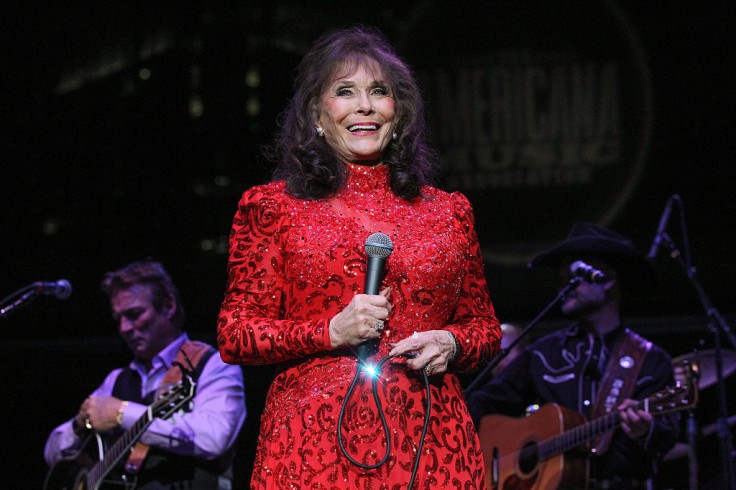
On October 4, at the age of 90, country legend Loretta Lynn passed away. Inexplicably, only days prior, it was reported that the country star was already making arrangements for her own burial.
The singer reportedly passed away at her Tennessee property surrounded by family and of natural causes, according to TMZ.
According to an exclusive story by Radar Online, Lynn had made all funeral arrangements prior to her departure. Last week, a family member disclosed that Loretta wishes to turn the majority of her physical assets into cash so that she does not burden her children and grandkids with the responsibility of selling her possessions once she passes away.
While this seems eerie for some, it does show how progressive of a thinker Lynn was, even though she's born far earlier than this modern generation.
In fact, according to Billboard, Lynn's not just a music icon, she's a trailblazer. The only thing "old-fashioned" about her was her outfits - but who cares about that, really?
Mr. Blackwell, a snobby fashion hero who compiled annual lists of the world's worst-dressed ladies for decades, ranked Loretta Lynn eighth on his list of the world's worst-dressed women some 45 years ago, deeming her attire "the perfect outfit in the wrong century."
Lynn's unusual attire - long, grandmotherly gowns that were sometimes decorated with lace and occasionally glittering - seemed retrograde to many, much like her ultra-rural speech. But her songs were something else, as Billboard reported now, after the news of her shocking death.
Lynn's songs, which were reflections of her own character and humanity, were progressive, in contrast to her outwardly conservative demeanor. Lynn portrayed the women in her songs as radically progressive: strong, self-directed adults willing and able to stand up for themselves at a time when society largely discouraged it.
By penning songs about her husband/manager Oliver "Doolittle" , Lynn's extramarital affairs, she attacked taboo themes, such as alcoholism and infidelity, which were regarded as family secrets in most houses.
With "You Ain't Woman Enough," "Don't Come Home A-Drinkin' (With Lovin' On Your Mind)," and "Fist City," she aired her dirty laundry on the national airways and rose to fame because she was naive and stubborn enough to believe that honesty was the best policy in her songs. Indeed, she was correct.
She possessed an unquestionably feminine tone, yet her delivery was rough.
In lieu of embellishing her tone, she combined it with songs that conveyed her the unvarnished truth - and, in turn, the biographies of other American women.
She spoke out double standards in "Rated 'X'" and praised the coming of contraceptive-induced freedom with "The Pill," a song first rejected by country radio. These titles demonstrated her progressive character. Lynn, having become the breadwinner in her household, essentially demanded equal treatment and respect prior to the women's movement.
© 2025 MusicTimes.com All rights reserved. Do not reproduce without permission.




